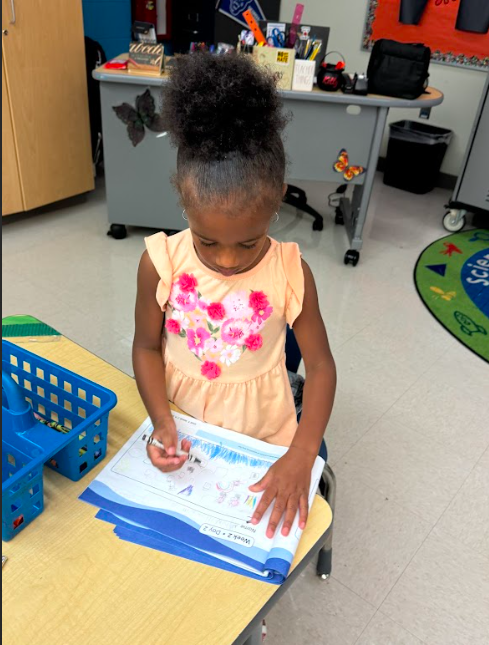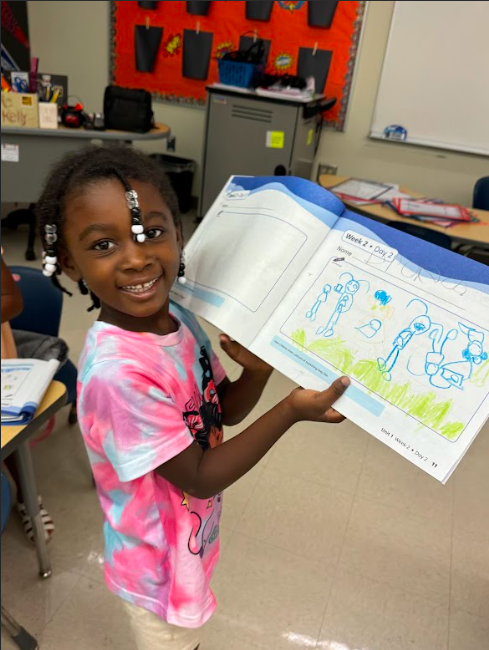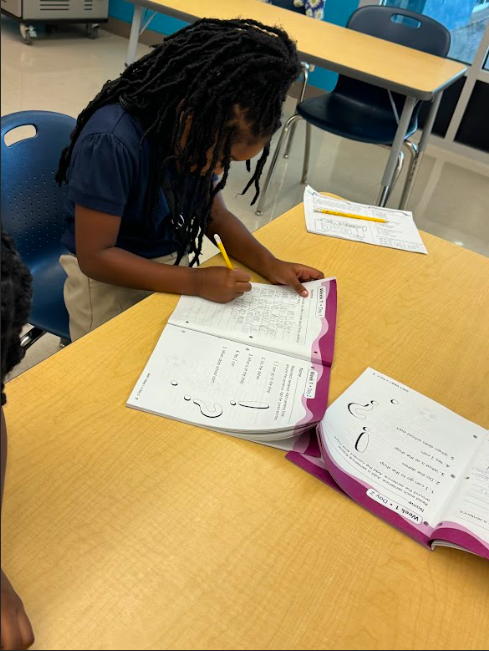- Harper Archer Elementary School
- English Language Arts




-
English Language Arts Instruction at Harper-Archer
Harper-Archer Elementary School uses the Structured Literacy Framework for the ELA core curriculum, with supplemental support from FlyLeaf, Heggerty, Morpheme Magic, Bridge to Writing, Write Score, and Achieve 3000 (2nd - 5th). This framework ensures that scholars receive explicit instruction systematically and sequentially while incorporating key components. The goal is for teachers to provide scholars with a flow that allows scholars and teachers to make the connection between what's occurring, moving from foundational skills, application, and finally, standards.
Components of the Structured Literacy Framework:
- Phonemic Awareness - Waking up our Sound Systems. Scholars will engage in the identification of phonemes, blend phonemes, and segment phonemes. Teachers will teach phoneme - grapheme correspondence using hand gestures to support memory for associations.
- Small Group Instruction - The purpose of small group instruction is to strengthen phonological and phonemic awareness(Heggerty) skills. Teachers have opportunities to work with targeted groups in which they use explicit models and support the fluency of scholars. Scholars are also taught phonics skills at their ZPD (Zone of Proximal Development) using assessments to determine entry points.
- Close Reading - Close Reading promotes literacy development, encompassing comprehension techniques, vocabulary building, specific reading-related background knowledge, verbal reasoning, and perspective-taking abilities.
- Vocabulary - Vocabulary instruction is the process of storing information about the meanings and pronunciation of words necessary for communication.
- Read Alouds - Read aloud supports critical thinking, thus providing language models that support full-sentence responses. (Oral Language) During this time, teachers will apply grade-level standards. Teachers will also model the following comprehension reading strategies: monitoring, making connections, creating mental images, questioning, predicting, text structure, and summarizing.
- Writing/Language Syntax - During this time, teachers implement writing strategies and skills to enhance scholars' constructed responses and genre-specific writing.
- Writer’s Workshop - Writer’s Workshop includes
- a mini-lesson
- independent writing time in which students are expected to practice a particular strategy during a phase of the writing process (generating ideas, drafting, revising, editing, and publishing).
- teacher-student conferencing,
- small group instruction,
- a close/share in which students have an opportunity to model or express how they used the strategy during the workshop time.
